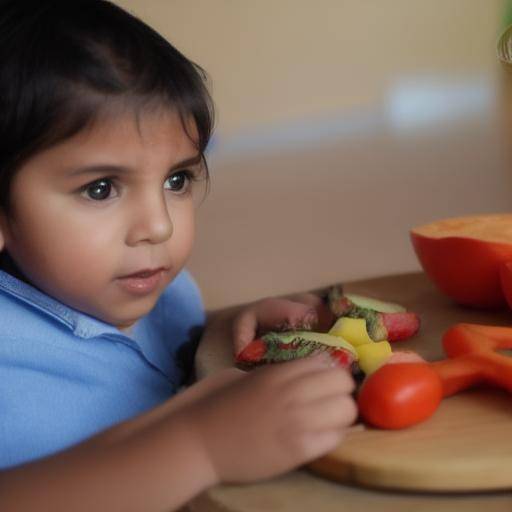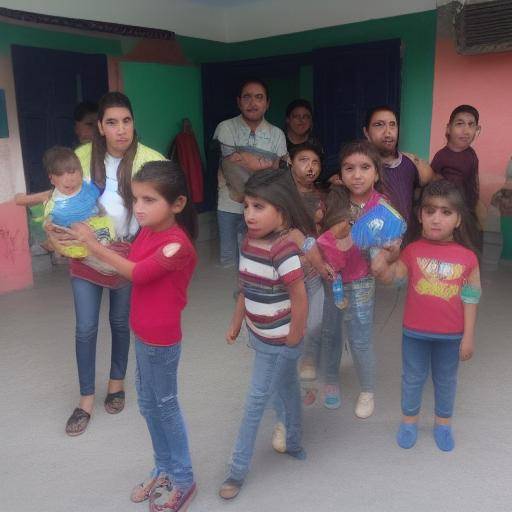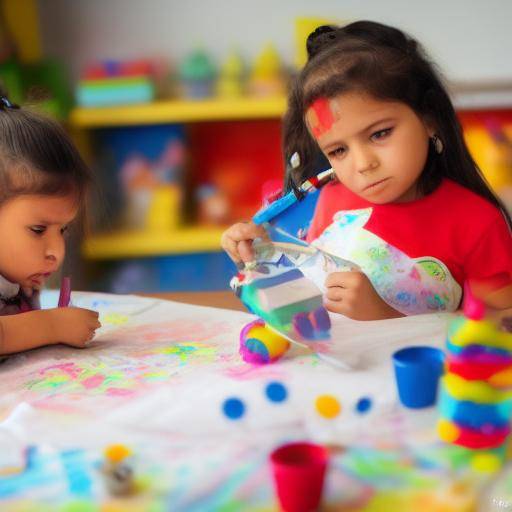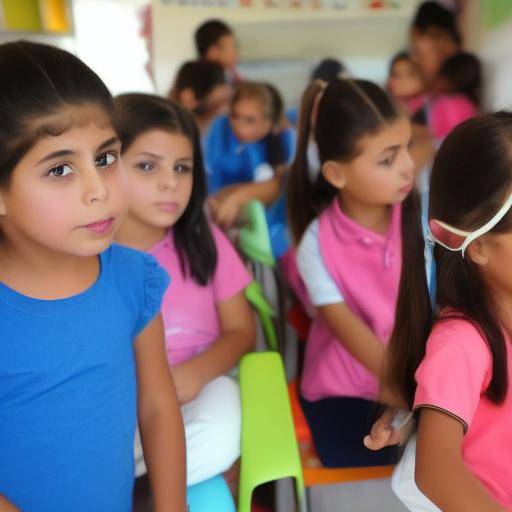
Resilience in children is crucial to their emotional and mental development. Helping children develop resilience allows them to face challenges, adapt to adversities and overcome difficulties. In this article, we will explore in depth what resilience is, why it is important to promote it in children, how it can be fostered and practical advice for parents and caregivers. We will also provide real examples, future trends and expert views in this area.
Introduction
Resilience in children is the ability to face and overcome adversity, stress and trauma. It is a crucial skill that allows them to recover and prosper despite the challenges they face. Fostering resilience in children is fundamental to their emotional, social and global well-being. In this article, we will explore in detail how to promote resilience in children, providing valuable and practical information for parents, educators and caregivers.
History and Background
The notion of resilience has its roots in psychology and social work. It has developed over time to better understand how people can overcome difficult situations. Since its inception, resilience has been studied in different disciplines, and has deepened its importance in relation to child development.
In recent years, resilience in children has gained significant attention, as its positive impact on child welfare is increasingly recognized. Studies have shown that children who are resilient are more likely to succeed in school, form positive relationships and become healthy and productive adults.
Analysis in Deep
Promoting resilience in children not only involves helping them overcome challenges, but also providing them with tools to develop a resilient mentality from an early age. This may include fostering self-esteem, teaching coping skills and providing a support environment that encourages resilience.
There are challenges in promoting resilience in children, such as identifying and addressing risk factors, overcoming cultural stereotypes and providing adequate support. However, the benefits far exceed these challenges, as resilient children are better equipped to cope with the complexities of life and develop a positive mentality.
Comprehensive review
Exploring practical applications for building resilience in children is critical. Providing an environment based on emotional support, the development of coping skills and the promotion of a positive mentality are key components on the path to child resilience.
Some of the best practices include promoting problem solving, promoting self-expression and fostering optimism. Specific strategies may vary according to individual age and circumstances, but the basis is always to strengthen coping capacity and promote adaptability.
Comparative analysis
To compare resilience, childhood and advocacy gives us an integral vision of how these areas intertwine and influence each other. Resilience in children is a vital component of child development, and effectively promoting it requires understanding how it integrates with other aspects of child welfare and development.
Identifying the similarities and differences between resilience, childhood and advocacy makes it possible to better understand the complexity of child development and how it can be effectively intervened to provide the best possible support to children.
Practical Tips and Accessible Tips
For parents and caregivers, it is crucial to have practical tools to promote resilience in children. Some tips include promoting self-reflection, promoting healthy social skills and teaching the importance of establishing realistic goals.
In addition, it is important to provide a safe and supportive environment, model resilience through behaviour and encourage problem solving.
Industry Perspectives and Expert Reviews
To fully understand the promotion of resilience in children, it is essential to explore the perspectives of experts in the field of child development, psychology and education. Expert opinions provide an informed and valuable insight into effective strategies, common challenges and the long-term impact of building resilience in children.
Experts highlight the importance of addressing resilience from a holistic perspective, which involves cognitive, emotional and social aspects of child development. In addition, they emphasize the need for close collaboration between parents, educators and community to provide comprehensive support to children on their path to resilience.
Case Studies and Practical Applications
Case studies provide concrete examples of how resilience is promoted in children in different contexts. Observing the practical application of resilience promotion strategies allows us to understand how the theories and concepts are translated into real life, and the tangible impacts they generate on the well-being of children.
Through case studies, it is possible to identify effective patterns and approaches, as well as to learn from the challenges and obstacles that may arise in fostering resilience in children. These practical examples are essential to enrich our understanding and improve our resilience promotion strategies.
Future Trends and Predictions
The field of the promotion of resilience in children is constantly evolving, and it is important to be aware of future trends and predictions that will impact this area. From progress in understanding childhood neuroscience to innovations in educational and social support programs, future trends can have a significant impact on how we promote resilience in children.
Future trends are expected to focus on integrating multidisciplinary approaches, using technology for emotional support and strengthening collaboration among different actors in child development. These trends offer exciting opportunities to improve resilience promotion strategies and provide even more effective support to children.
Conclusion
The promotion of resilience in children is a fundamental aspect of child welfare, with long-term impacts on their development and happiness. In understanding the importance of building resilience, exploring practical strategies and being aware of future trends and predictions, we can provide effective support for children to develop a resilient mentality.
Resilience in children is a skill that can be encouraged and strengthened throughout childhood, and its impact extends to all aspects of their lives. By promoting resilience in children, we are laying the groundwork for them to face the world with confidence, adaptability and emotional strength.
Frequently asked questions
1. What is resilience in children?
Resilience in children refers to their ability to face adversity, adapt to challenges and recover from difficult situations.
2. Why is it important to promote resilience in children?
Promoting resilience in children is crucial for their emotional, social and global well-being. It provides them with the necessary tools to meet the challenges of life in a positive way.
3. How can parents foster resilience in their children?
Parents can foster resilience in their children by promoting self-esteem, teaching coping skills and providing a support environment that fosters resilience.
4. What are the benefits of children being resilient?
Resilient children are more likely to succeed in school, form positive relationships and become healthy and productive adults.
5. What are some challenges in promoting resilience in children?
Identifying and addressing risk factors, overcoming cultural stereotypes and providing adequate support are common challenges in promoting resilience in children.
6. What are some practical strategies for building resilience in children?
Some practical strategies include promoting problem solving, promoting self-expression, fostering optimism and providing an emotional support environment.
Disclosure
The information provided in this article is for educational and informative purposes. If you have concerns about the emotional well-being and development of a child, we recommend you to seek advice from a mental health professional or a pediatrician.
In conclusion, fostering resilience in children is a crucial aspect of child care and upbringing. Providing them with the necessary tools and support to develop a resilient mentality allows them to confront with confidence the challenges of life and achieve their full potential.






















































